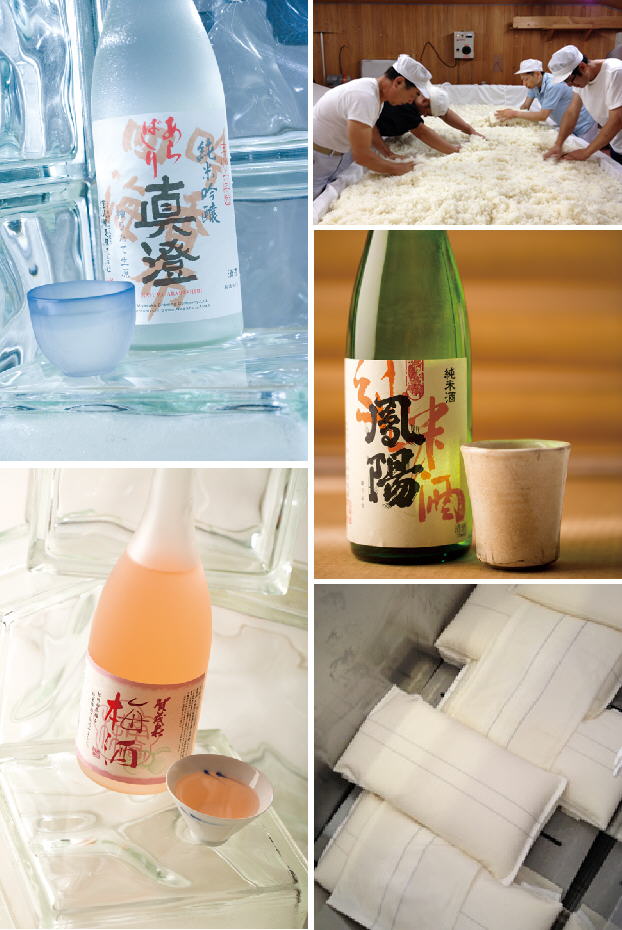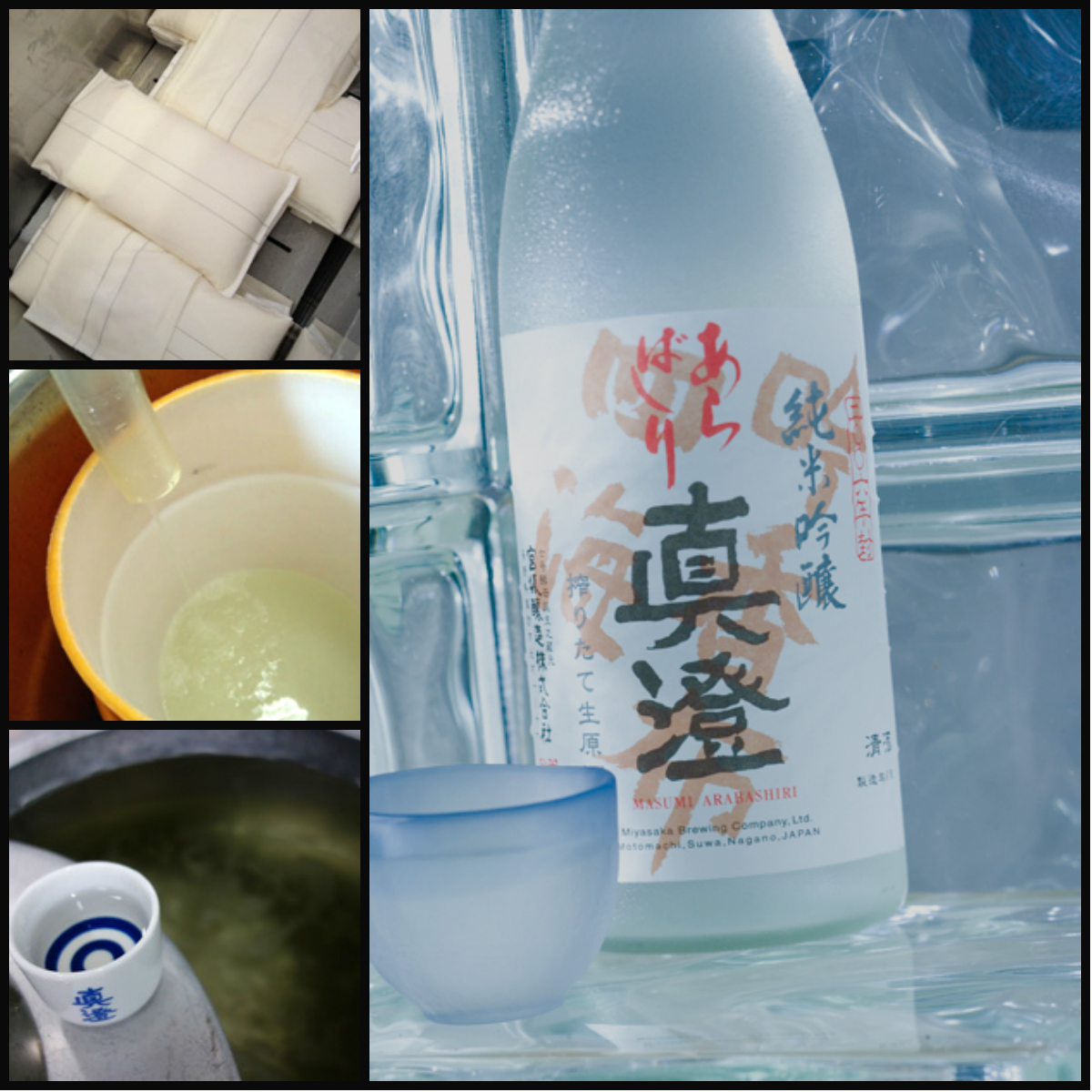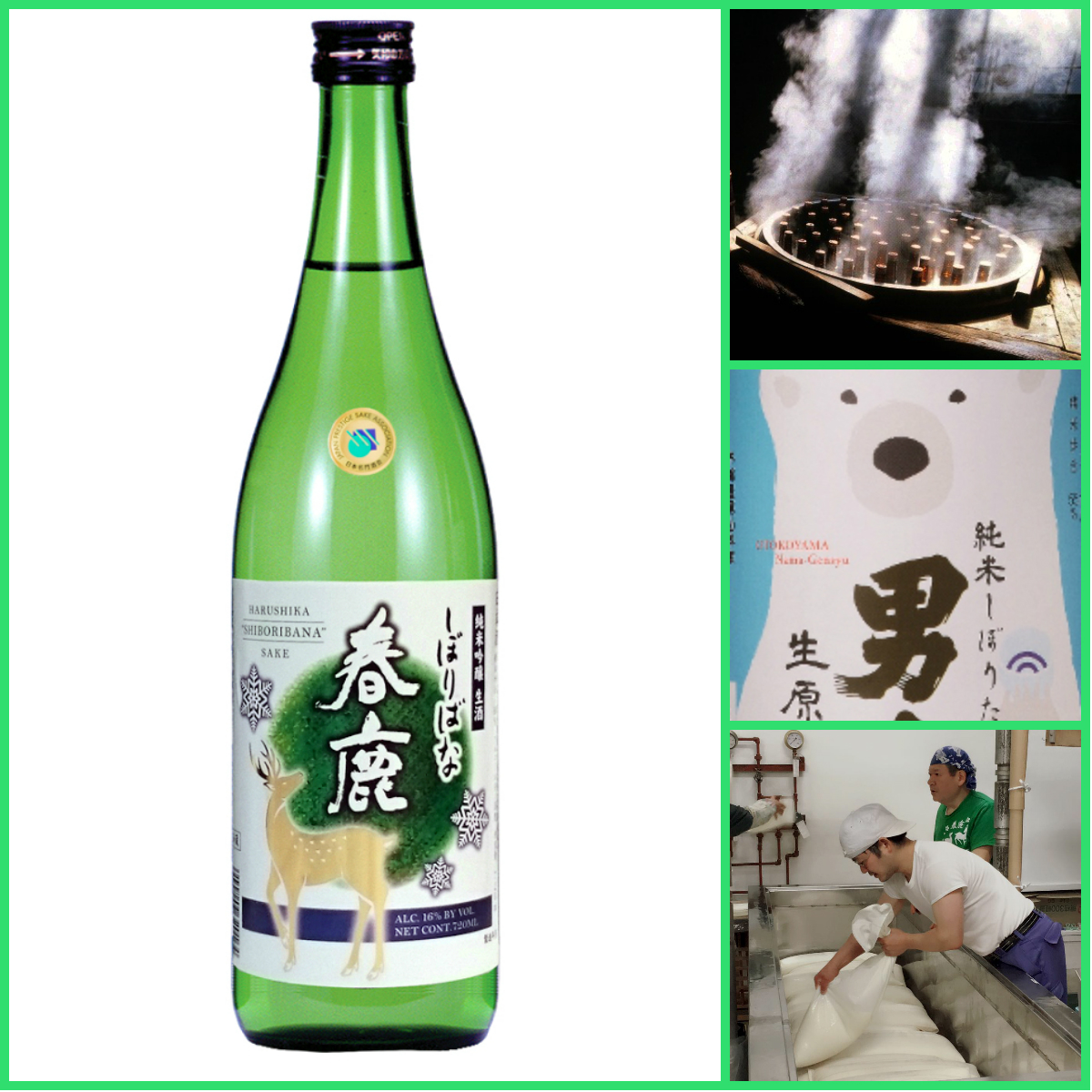NEW SAKE TASTING
Recently we’ve been so busy at the shop that we thought about skipping a sake tasting for the month of March. We already had two, possibly three tastings lined up for April, and it was almost the ending of the month.
Then Yoshi, from World Sake Imports, told us about two new sake that they had just brought in to town. He also reminded us that the NEW batch of Masumi Arabashiri had also arrived. When he also offered to let us sample some high end Masumi Yumedono, we had no choice but to say YES! Get ready for our NEW SAKE Tasting this Saturday, March 29th!
We’ll be sampling SEVEN different sake including an UMESHU from Kamoizumi that is brand new to Hawaii and a new sake from Hoyo. Hope you can make it!
NEW SAKE TASTING!
Saturday, March 29, 2014
2:00pm to 7:30pm

HOYO SAWAYAKA JUNMAI
**NEW TO HAWAII**
Junmai
BRAND NEW to Hawaii, this lovely junmai sake is soft and smoothly contoured, with lilting notes of balsam and tangerine. Charming and demure, a rare junmai surprise.

MASUMI YUMEDONO
“MANSION OF DREAMS”
Daiginjo
One of the most elegantly floral and fruity sake we’ve had the pleasure of ever drinking, Yumedono presents an array of flavor nuances that include peach, melon and strawberry. Rarely does one sake combine so many taste sensations in a single cup … or finish so gloriously!

MASUMI ARABASHIRI
“FIRST RUN”
Junmai Ginjo Namazake
It’s that time of the year again, when the BRAND NEWbatch of Masumi Arabashiri is finally released for sale! This Spring release namazake beings with a lovely fragrant aroma, then a vivid clean taste followed with a robust finish. Young and feisty like many namazake, but with surprising finesse, this connoisseur’s delight from Masumi is not to be missed.

TAMAGAWA TOKUBETSU JUNMAI
“HEART OF OAK”
Tokubetsu Junmai
Signature junmai release from British Sake Brewmaster Philip Harper. Nutty and toasty with a wild berry zing, this full-throated evocation of junmai delight is in a class by itself. Richly flavorful, yet crisp-drinking and always balanced.

SEITOKU GENSHU
“TRAPEZA – CASK RELEASE”
Junmai Ginjo Genshu
Many of you are already familiar with Seitoku Junmai Ginjo in the beautiful blue bottle. A light, graceful and refined ginjo with lingering notes of lychee. Well, let me introduce you to her BIG BROTHER, Seitoku Junmai Ginjo GENSHU! Big Brother here is the undiluted full strength version or “genshu”! At 17% alcohol, it’s considerably more potent, but still maintains the clarity and balance of its lighter, equally aromatic little sister.

SEITOKU JUNMAI GINJO
“TRAPEZA”
Junmai Ginjo
If Seitoku were any lighter it would float away on a breeze. Pirouettes in perfect balance with just enough body to support its delicate flavor. A graceful refined sake with easy drinkability. For anyone who prefers a really light sake, this is the one for you!

KAMOIZUMI UMELICIOUS
**NEW TO HAWAII**
“UMELICIOUS”
Umeshu (Plum Wine)
BRAND NEW to Hawaii! Vibrant acidity and piquant plum flavor distinguish this lovely low-alcohol liqueur. Made with genshu sake and the finest Kishu ume plums.
Lot’s of new sake to try, the new batch of Arabashiri and a total of seven great sake to sample. Hope to see you then!
Kanpai,
Malcolm & Nadine Leong
The Sake Shop
NEW SAKE TASTING!
Saturday, March 29, 2014
2:00 pm to 7:30 pm

Kamoizumi Sake Brewery
Although we are first and foremost a sake shop, we also do carry a small select line of shochu and umeshu (plum wine). The brand new umeshu that we’ll be tasting this Saturday actually comes from one of our favorite sake breweries, Kamoizumi, located in the Saijo area of Hiroshima prefecture.
Compared to other breweries, Kamoizumi is relatively young having been founded around 100 years ago in 1912. The brewery is known for brewing only junmai muroka sake. junmai means no additional alcohol was added and muroka means the sake was not charcoal filtered as most sake are.

Kamoizumi Toji
The Maekake family, who run the Kamoizumi brewery, started out as rice farmers who became landlords and then moved into “value added” areas such as rice milling and eventually sake brewing at the onset of the modern era in 1910.
In 1965, Kamoizumi became one of a pioneering group of ten breweries who committed to junmai sake production at a time when breweries all over Japan were heavy-handedly adding brewers alcohol to their vats to make as much money as possible.
Kamoizumi Saying
In 1971, Kamoizumi introduced its first junmai label. At the time, it was the practice to filter the pressed sake through charcoal to remove impurities and attain the pure, colorless state that was the aesthetic ideal. The Kamoizumi brewers felt, however, that these “impurities” were essential characteristics of the sake itself and that to remove them entirely was to compromise the essential nature of its identity.
No brewery in Japan has taken a stronger stand for individuality than Kamoizumi. Their sake has an attitude: robust, tawny, full-flavored, yet with the smooth finish and easy drinkability that are the hallmarks of technical mastery. Aging and blending are paramount, and when finally released, the Kamoizumi labels pair well with meat dishes and Chinese cuisine, a rarity in the sake world. For the connoisseur, their supple balance of sweetness, acidity, astringency and the elusive flavor component of “umami” is without peer.

What is Umeshu?
So I’m just beginning to understand sake and now you’re going to pour us “umeshu” this Saturday. What the heck is umeshu?
Good question, umeshu (also known as plum wine) is a traditional Japanese liqueur made from steeping green ume plums into alcohol with sugar. The base alcohol is usually shochu or sake. The umeshu we’ll be sampling from Kamoizumi is made using their undiluted genshu sake.

Ume Fruit
Although usually referred to as a plum, ume (prunus mume) is technically a fruit that is more closely related to the apricot family. Many people are familiar with ume in it’s pickled form “umeboshi”, that salty shriveled little red ball of goodness that you eat with rice and find in bento boxes.

Masumi Arabashiri
Besides the two sake that are new to Hawaii, we will also be sampling a brand new batch of Masumi Arabashiri. This is a seasonal sake that has just been released to Hawaii for Spring 2014. It’s name, “Arabashiri”, means “First Run” and has to do with the part of the brewing process when the sake is first pressed.
During the sake making process, when the sake mash has finished fermenting, it is pressed to filter the liquid from the sake lees, or unfermented rice. This process can be accomplished in a couple of different ways.

Yabuta Sake Press
Many breweries will use a large accordion like machine to press their sake. By pressing the mash in between several layers of panels, these machines can efficiently extract a large amount of sake.

Masumi Fune (Box Press)
Other breweries continue to use a more traditional method of pressing that utilizes a box called a “fune”. Canvas bags are filled with sake mash and then laid in the box. A lid is pressed down causing the liquid to filter through the bags leaving the sake lees behind.
Now the liquid that is pressed out of the box can be divided into three different parts. Before applying any pressure, the weight of the bags themselves with some help from gravity cause a “free run” of sake to first flow out.
This first third of the pressing is called Arabashiri which translates to “First Run” or “Rough Run”. This first pressing is indeed slightly rough and brash but very tasty. Be sure to try some of Masumi’s Arabashiri this Saturday at the shop.

1461 S. King Street
Honolulu, HI 96814
Ph (808) 947-7253
Fax (808) 947-7254
sakeshophawaii@gmail.com
www.sakeshophawaii.com
Twitter @sakeshop
Facebook The Sake Shop
Map: maps.google.com/maps
Parking
Metered parking available on King Street, Kaheka Street & Liona Street. Pay lot located behind our building. $2 for 1/2 hour Monday – Friday until 6pm and Saturdays until 2pm. All other hours $2 for 5 hours (paybox). Enter from Liona Street. Unfortunately we are unable to validate parking.
Hours of Operation
10am to 8pm Mon – Sat
10am to 5pm Sun






